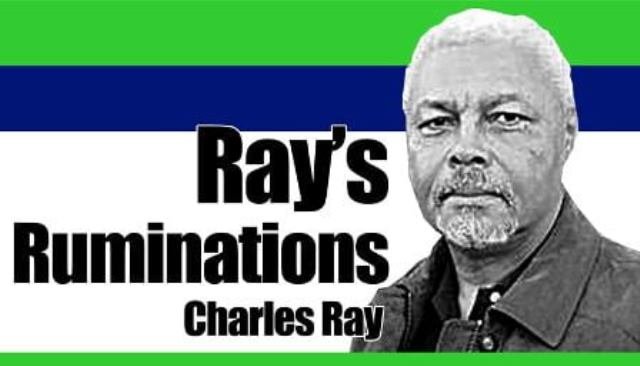
Nowadays there seems to be a lot of discord and disagreement infecting societies around the globe. It appears that there is no subject that is not a matter of intense disagreement, from the existence of climate change to whether or not wearing masks is useful in limiting the spread of infectious diseases.
The truly sad aspect of all this in my humble opinion is less that we are disagreeing, but the depressing fact that we can’t seem to avoid being disagreeable in the process. We no longer hate the message, but we seem to insist on detesting the messenger as well.
In all the years that I’ve been on earth, one thing I’ve learned is that differences of opinion are an inevitable fact of life. Some are legitimate — which is better, regular or Diet Coke — while others make about as much sense as a two-headed dog — is climate change real or not — because there are facts to support one view (it’s real), while the other is often stated with fervor and the only evidence given in support is inane (using a snowball to disprove global warming).
I wish I could offer a prescription that would cure disagreement but, alas, until homo sapiens undergoes a quantum evolution — and becomes truly sapient — we will just have to live with the squabbling, petty and otherwise. I can, however, offer a cure for the nasty nature of disagreements. We can eliminate the nastiness of arguments and go back to the old principle of object to the principle or fact and not to the person espousing it. We can strive to disagree without being disagreeable.
Just in case you’re thinking that I’m proposing the impossible, let me set you straight. It’s not only possible, it’s really not all that difficult. When I served as American ambassador to Zimbabwe, during the reign of Robert Mugabe, relations between the U.S. and Zimbabwe were at their nadir.
Prior to my arrival in Harare, for example, the state-run media were calling me a war criminal and predicting that I was being sent to Zimbabwe to oversee regime change, notwithstanding the fact that the U.S. had just had its own change in top leadership, and the doctrine of ‘regime change’ had been put on the trash heap where it belonged.
I could have reacted to such news coverage with outrage or denial, but decided instead to ignore it and to focus on my main job, establishing the relationships that are essential for a diplomat to be able to accomplish the assigned mission. That meant reaching out to everyone in the host government, even those who had said the harshest — and, I might add, untrue — things about me.
In my meetings with such people, I listened to their litany of complaints about me and my government, responded that I understood their point of view even though I respectfully disagreed with them and then changed the subject to my main focus, first of which was protecting the interests of American citizens in Zimbabwe, and second, helping the poorest in the country’s population improve their lives. As you might imagine, it made it difficult for government officials to argue with me, since I wasn’t arguing back.
A one-sided argument quickly sounds like whining, for one thing, and for another, I was the first person in my position to reach out to some of them in over a decade, a move they found it hard to counter, especially since I was interacting with the population in the same way and getting a very positive response from them in the process. Even dictators are sensitive to public opinion.
I’ll give you an example of how to disagree without being disagreeable. When Robert Mugabe’s younger sister died and I, along with the rest of the foreign diplomatic corps, was invited to the funeral, I went out of respect. During his delivery of the eulogy, Mugabe, as he often did, went off on a rant against UK and US neocolonialism and became quite vulgar in his description of both countries.
As ambassador I was in an uncomfortable position. I didn’t want to do something to further degrade the already frayed relations, but at the same time, I couldn’t stand by and allow my country to be so unfairly maligned. My German colleague, who sat next to me in the diplomatic tent, suggested that we wait until the president finished speaking and leave, which we did. The foreign minister, predictably, was livid and called me in to register a forceful complaint. I listened to him, quietly and without emotion said that the insult to my country left me no choice but to leave a place where I was clearly not welcome. I said much the same in an interview on state-controlled TV that same day.
You might be thinking I was asked to leave the country, but you’d be wrong. The public supported my action, because African custom forbids being rude to a guest, which I was at the time, and everyone, Mugabe included by the way, felt that my reaction was not only not impolite, but was correct. My relations with Mugabe, which had been surprisingly cordial from the day I presented my credentials in 2009, did not change. In 2012, when I paid my farewell call at the end of my assignment, he even asked if I could ask my government to allow me to stay on longer.
So, you see, you can disagree without being disagreeable, and it makes life a lot easier. | NWI




